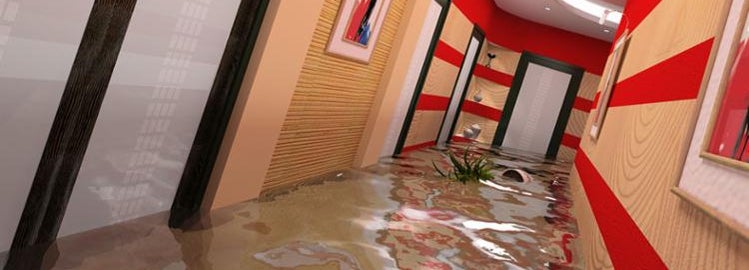Home Owners Wary About Sprinkler Systems

The television program "Shark Tank" recently featured a new tool invented by a firefighter after he observed the water damage resulting from fire sprinkler systems. As a greater number of townships and municipalities require builders to install sprinklers in new residential properties, home owners remain wary about the water damage that may result from their activation. Yet sprinklers have proven to be an effective away to save lives and limit property damage stemming from a fire.
Fire Sprinklers Save Insurance Dollars
From an insurance agent's perspective, fire sprinklers are an important home safety feature and often result in premium discounts of 5 percent to 25 percent, according to the Home Fire Sprinkler Coalition. But are home owners trading the lower risk of fire losses for an increased risk of water damage?
According to Paul Martin, CPCU and CAP State Association Liaison, the answer is "No." Mr. Martin says insurance companies cover any damage due to sprinkler activation in homes and will gladly pay a few thousand dollars for water-related losses rather than risk paying the several hundred thousand dollars or more needed to replace a home destroyed by fire.
Do Fire Sprinklers Always Work as Intended?
Although home owners express concern about accidental discharge of fire sprinklers, the systems activate only at a very high level of heat – often 180 degrees or more. Fire sprinklers will not be set off by steam from a shower or burning food. And, when sprinklers do go off in response to high heat, activation of just one sprinkler is enough to contain a fire 90 percent of the time.
In reality, inadvertent discharges of fire sprinklers are rare. Yet, although moderate heat will not set them off, they can be banged or knocked accidentally by a contractor or home owner on a ladder, so remember to exercise caution when working near sprinkler heads.
Water Shutoff Concerns
Sprinklers are primarily designed to put out fires and save lives. As a result, when they do go off, they are purposely constructed to make shutoff difficult. Upon activation, sprinklers shoot out an estimated 10 to 25 gallons of water per minute, which is much less than a fire hose, but is enough to cause significant damage if you're unable to turn off the water source in a timely fashion.
Home owners should know how to shut off the water quickly in the event a sprinkler is activated, or be able to tell fire department personnel how to do so. The Quickstop Tool featured on "Shark Tank" clamps onto an individual sprinkler and shuts off the water supply once a fire is contained, or in the event of accidental activation.
Compared to the risk of water damage in the event water shutoff is difficult or time-consuming, purchasing such a tool may be worth considering for home owners wary about fire sprinklers, if only for the added peace of mind.
Costs and Maintenance
According to the Fire Sprinkler Initiative, a project of the National Fire Protection Association, the cost of adding fire sprinklers to newly constructed homes averages $1.35 per square foot, or about the cost of upgrading carpets. This initial investment is returned to home owners in the form of reduced home insurance premiums. Some municipalities also offer property tax breaks to home owners who choose to install fire sprinklers.
As for maintenance, sprinkler systems generally need very little ongoing care other than periodic testing. In addition to knowing how to cut off the water supply, home owners should be aware that sprinkler systems, like any water pipes, can freeze and burst. If you own a vacation home or a temporarily unoccupied residence with sprinklers, you may want to consider draining the pipes and shutting off the water when you are away for an extended period.
However, it's also important to note that shutting down the sprinkler system will increase your risk of fire damage, so be sure to carefully weigh your options. Asking a neighbor or cleaning service to periodically check your home is another way to identify potential problems in an unoccupied residence.
What's the Greatest Benefit of Residential Sprinklers? Immediate Response to a Fire
In rural areas, where fire department response time is much greater than in heavily populated towns, fire sprinklers may be a home owner's best chance of preventing a fire from spreading throughout their home due to their immediate activation. As a result, the rise in popularity of home sprinkler systems is directly related to their proven ability to save lives and limit property damage.
If you are considering adding fire sprinklers to your home and you have specific questions about how they affect home insurance, contact an independent agent for assistance. Our independent agents work for consumers, not a large parent company, and they can provide you with several quotes for comparative purposes.
